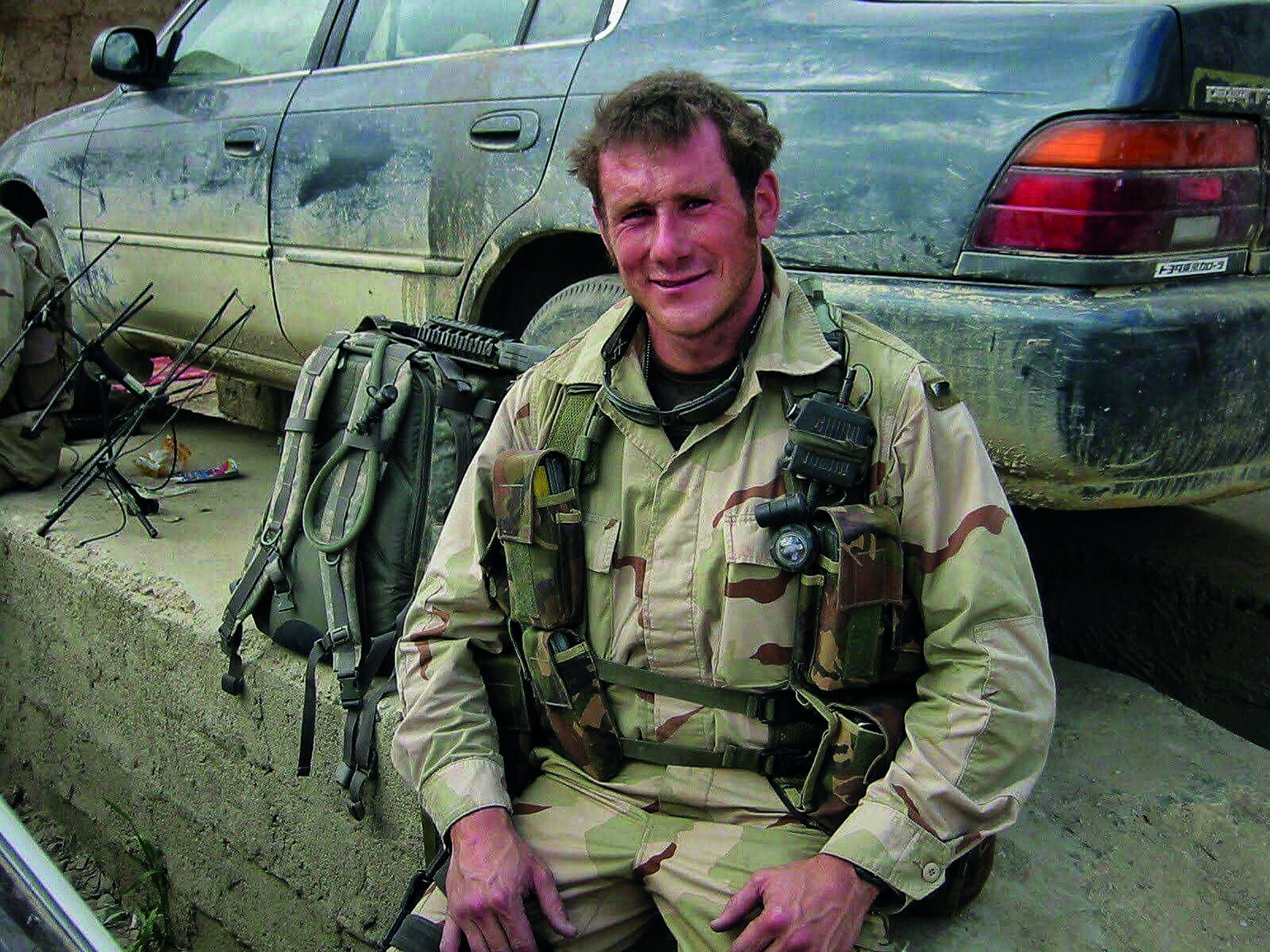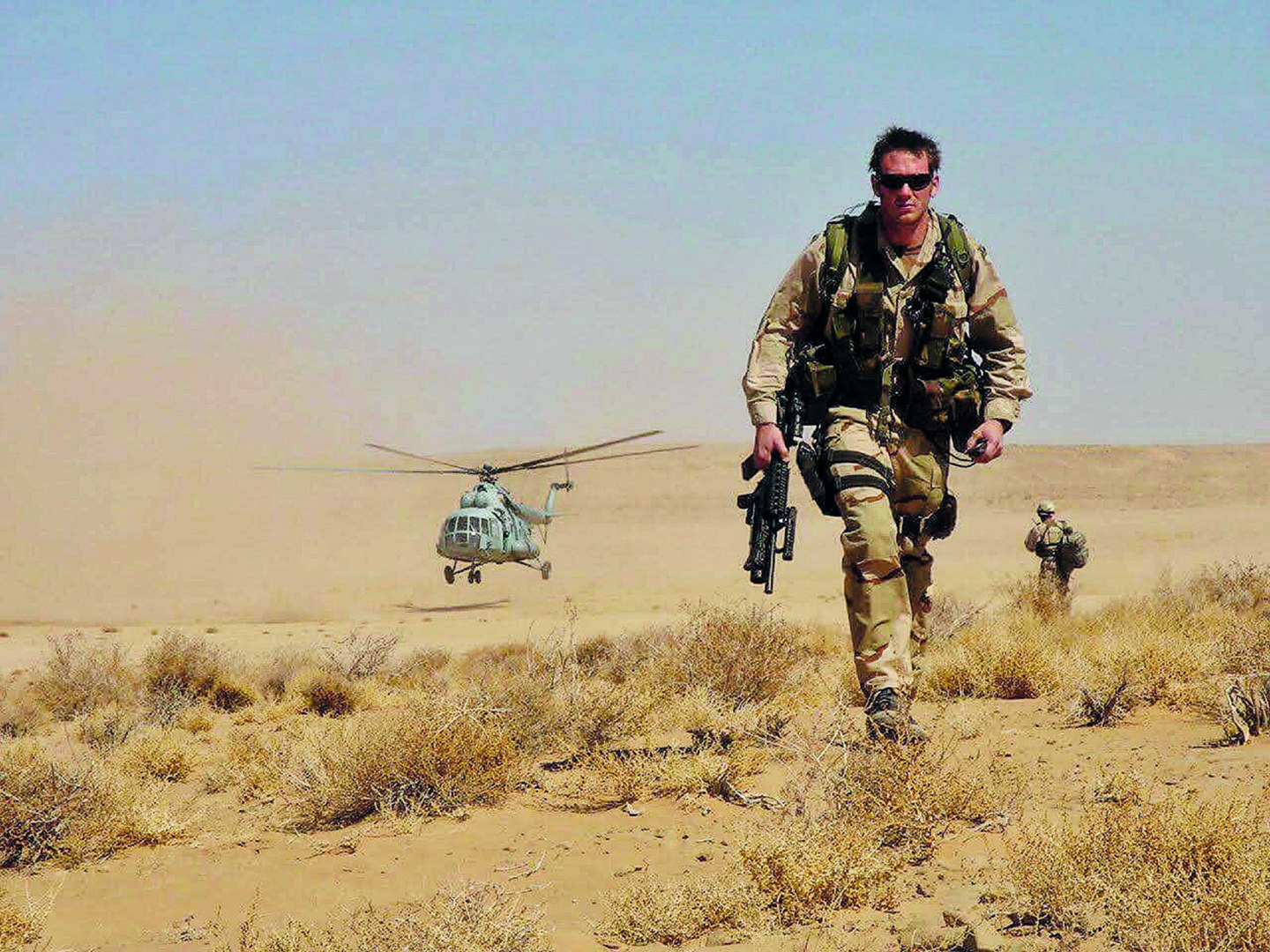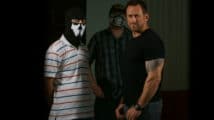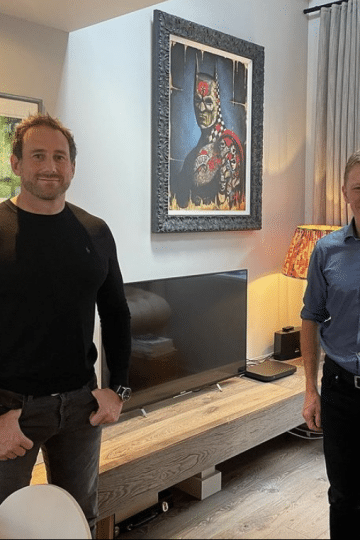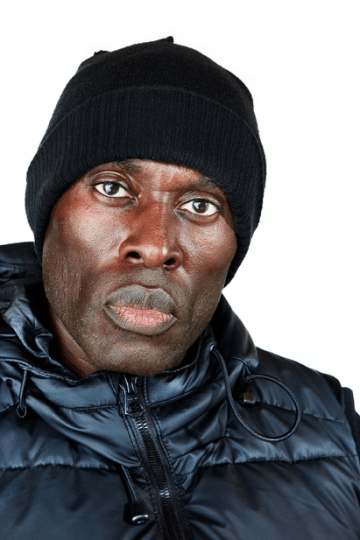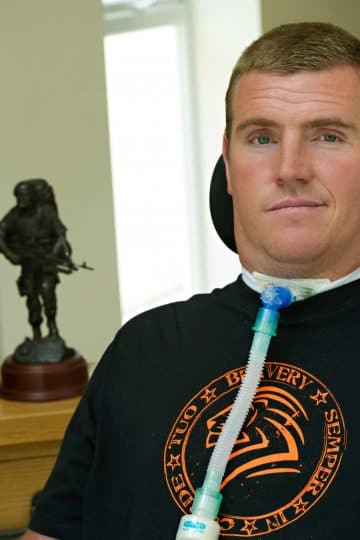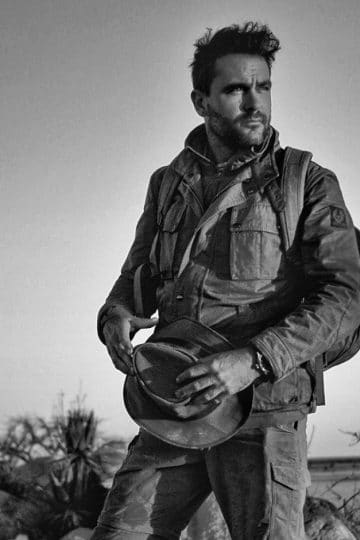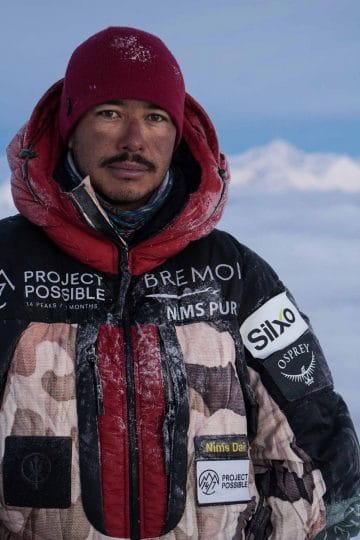Jason Fox – exclusive ‘Battle Scars’ extract
Jason Fox
An extract of our columnist Jason Fox's new book 'Battle Scars'. Hold onto your hats, this is intense...
Is this my time?
Not here.
I want to go home.
I should be so lucky.
And we’re back there now, the place where it all started.
The sky erupted. Bullets with a blossom. Vivid puffs of phosphorescent green that sparked in the desert terrain below and sharpened into small dots, arcing towards our helicopter through a hazy, pea-soup blur. The trippy, spectral visuals were tracers, their surreal glow created by the night-vision goggles, the ‘NVGs’, strapped tightly across my face. Pop, pop, pop! Hundreds of them, more muzzle ashes in lime, more shooters, more rounds, speckling the ground a thousand feet down, suddenly zipping closer as I sat somewhere under the Chinook’s whump- ing rotary blades. We had been spotted by a large group of enemy fighters, a couple of hundred at least, and their angry response was a rowdy launch of little lead wasps, each one approaching with an increasing velocity and brightness as they screamed by in their incandescent fury.
Anticipation grabbed at my chest. I was being wind-blasted from the air rushing through our windows, every glass pane on board smashed in to cool the oppressive desert heat outside – air conditioning, British military-style. The heavy smell of aviation fuel had clung to my nostrils for a while, but as the helicopter descended ever more rapidly, an all-too-familiar stench took over. Sweet and pungent, the desert environment had a whiff all of its own: a weird blend of human and animal sewage, vegetation, dirt and body odour, the filthy essences mixed into an intensely rich and warm perfume. I could almost taste the habitation, the stink of mud buildings, the straw roofs, animal feed, dirty water and tangy manure. The rot and detritus cooked in the hot daylight, and even at night-time the smells never stopped wafting across the sand. During missions that involved a slow approach by land, there was an almost undetectable change in smell as we advanced, and my senses were often attacked subtly by aroma, kilometre by kilometre. But dropping rapidly out of the sky in a helicopter delivered a swift shock to the system and the odours blasted and tingled the hairs in my nostrils.
After several years of working in arid warzones, this reaction had become a trigger point, a warning I was moving into trouble. In the military we referred to those instinctive feedback loops as ‘combat indicators’, a sensual sign of looming conflict. On the ground, one of these triggers might have been something that didn’t look quite right at the side of the road, a dug-up mound of earth maybe, or a hint of some recent enemy activity such as the not-so-subtle planting of an IED by an amateur. It was al- ways a subconscious alarm bell, and my body and senses seemed to come alive with the realization . . . I’m in a helicopter, I’m surrounded by teammates, and know that smell . . . a fight was coming. Goosebumps prickled my skin; Kylie Minogue sang softly, sweetly, into my earphones, my iPod Shuffle delivering a surreal soundtrack to a night-op turned to hell when it could have easily thrown out something more befitting of the vibe, like the angry riffing of Iron Maiden or AC/DC. And then, a blast of pain hammered at my legs, an intense throbbing that seemed to begin in my kneecaps and wrenched at my thighs.
Oh no.
No.
No, no, no. Please not a hit.
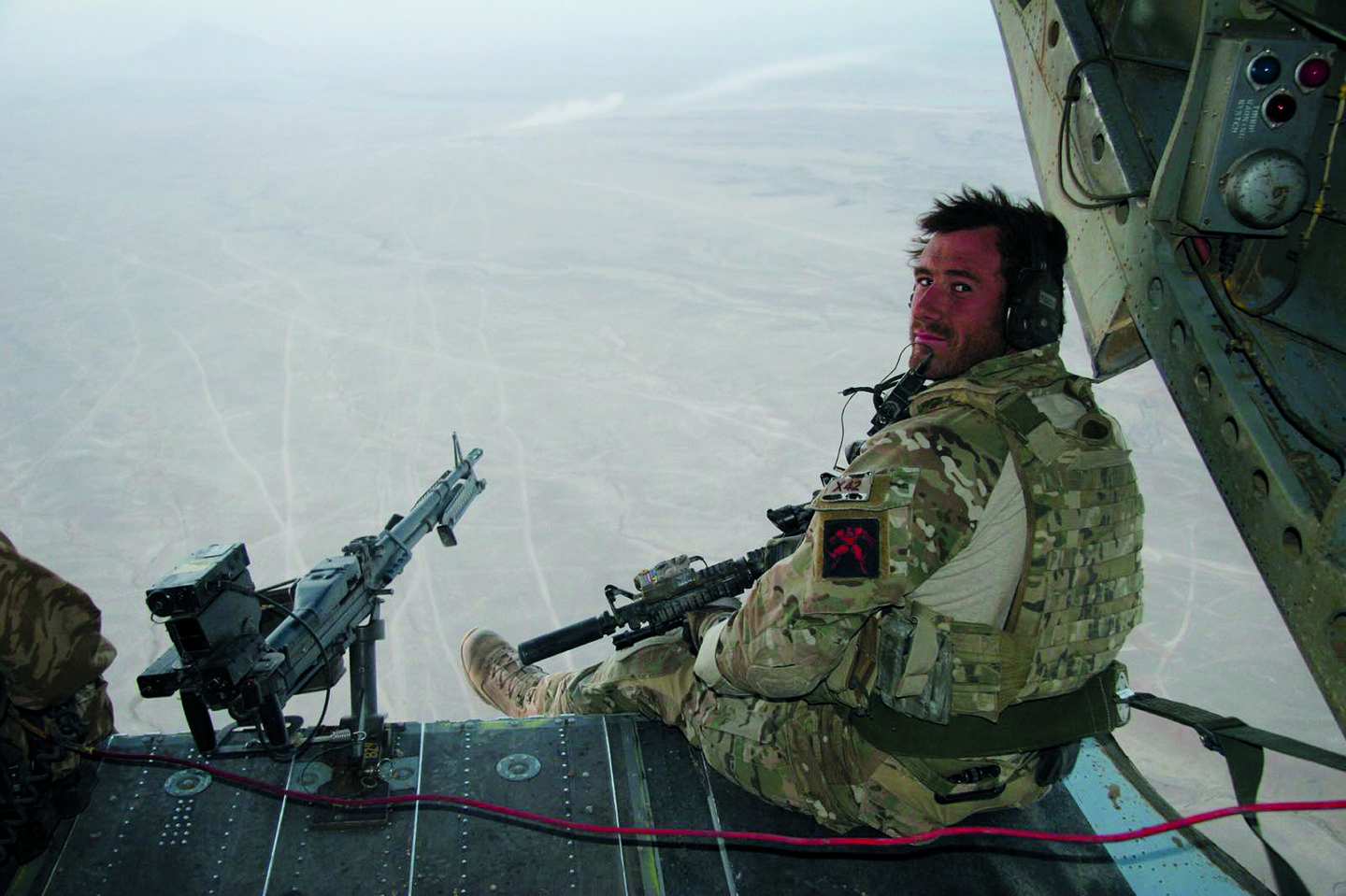
I peered down nervously and squinted into the gloom, but I hadn’t caught a bullet or shrapnel splinter. Instead, the stress of incoming re had tweaked my body’s sympathetic nervous system, the flight-or- fight response, and I’d instinctively grabbed at my knees, my fingers locking around the quad muscles in a white-knuckled grip as I painfully clutched at the flesh. Blowing away a sigh of relief, I pulled back and tried to reassure myself that everything was going to be OK. I’m not going to cop a round – not on this job. Weirdly though, there was no release from the throbbing sensation in my legs, even once I’d grabbed at the barrel of my gun for comfort. I winced. It wasn’t my knees I’d been clutching in terror: I’d been squeezing the soldier next to me, and he’d been squeezing me. We looked at each other, realizing that a surreal moment of accidental tenderness had briefly unfolded, the pair of us kitted out in body armour, ammo, shock-and-awe weaponry. We had been touching each other’s thighs; we giggled nervously like it was a weird first date. Two soldiers about to land in the middle of a gun fight, rounds pinging past us, our helicopters dropping into the heart of a village brimming with enemy fighters armed with AK-47 machine guns and rocket-propelled grenade launchers, both of us feeling embarrassed at a split second of unintentional intimacy. It seemed funny for a second or two – unless you really thought about it.
A shout went up from the back of the chopper.
‘Three minutes!’
The call was echoed down the line of waiting fighters, from ramp to cockpit, every voice reaffirming to the next man that it was ‘Go Time’. Three minutes during which nobody should be in any doubt that a proper scrap was about to kick off. Three minutes until we landed. Three minutes of helplessness, of not being in control of anything. With the Chinook’s ramp slowly opening, I could assess our situation more clearly: Toyota Land Cruisers had pulled up underneath us, heavy machine guns mounted on the rear, the shooters on the back blowing the grainy green sky to ribbons. In response, our gunner popped o rounds, dragon-breath bursts looking to strike the targets below, but we were moving too quickly and it was almost impossible to hit anyone as we swooped down to 500 feet. I took a split second to check over my kit one final time: gun, ammo, radio; a frantic pat-down that always takes place whenever we are about to execute a mission. I switched my iPod headphones for the standard-issue earpiece that links every soldier working on the ground.
The buildings ahead sharpened in my night-vision goggles. The sturdy-looking huts, made from mud and straw, seemed to tumble over one another, unplanned and built seemingly without thought. Their edges were stacked along uneven lines and con- fusing alleys, and I could never understand how the rows stayed together. But the buildings’ robustness under re made them architectural wonders to me; sometimes the walls were several feet thick and it was often hard work to blow in the perimeters if ever we had to breach a compound.
There would be an engaging, if unnerving, chaos to entire settlements. e streets comprised disorientating, sprawling arteries of tunnels and alleyways; blocked-up squares used for dropping o human excrement; shop stalls and shutters – with no distinctive landmarks or signposts to help anybody negotiate their way from A to Z. Homes weren’t laid out in neat little rows and cul-de-sacs like they were at home in new towns such as Milton Keynes or Peterborough. Instead they popped up without permission or thought. Getting lost in the thick of an urban firefight was sometimes an occupational hazard, and somewhere in that sprawl was our target in a top-secret mission.
An explosion jolted me violently and our helicopter jinked to one side with the shock. Nowhere to run to. Avoiding the barrage from below was almost impossible now: moving around in the air too quickly would only burn the fuel we needed to get us away once the job was executed. Nowhere to hide. Tracer rounds peppered my eld of vision along with the hypnotic, distracting blizzard of static electricity generated by the chopper’s spinning rotary blades, weird little shards of light that shimmered in the green dark of the NVGs. I looked across and watched the helicopter next to us receive another rush of heavy fire as we began our touchdown.
The last thing we need is for one of the helicopters to fall from the sky . . .
And then, another shout above the noise: the ramp had been fully lowered. I could see the tree branches bending and rippling ahead of us in the downforce of our arrival and the buildings and cars, and enemy fighters, were in full view. We were on the ground.
‘Time to move!’

‘Battle Scars’ by Jason Fox
Jason Fox's first book about his life in the military, and what happened after.
www.amazon.co.ukTrending

Join The Book of Man
Sign up to our daily newsletters to join the frontline of the revolution in masculinity.




